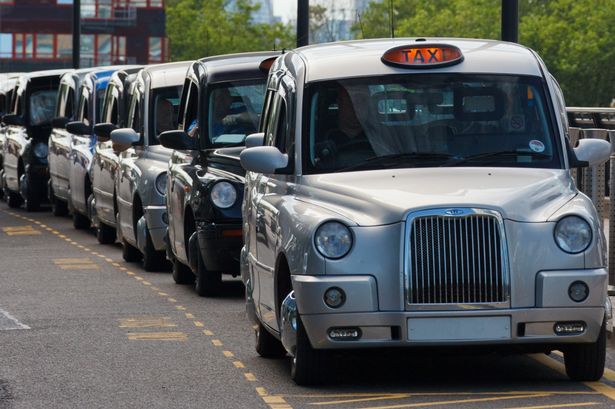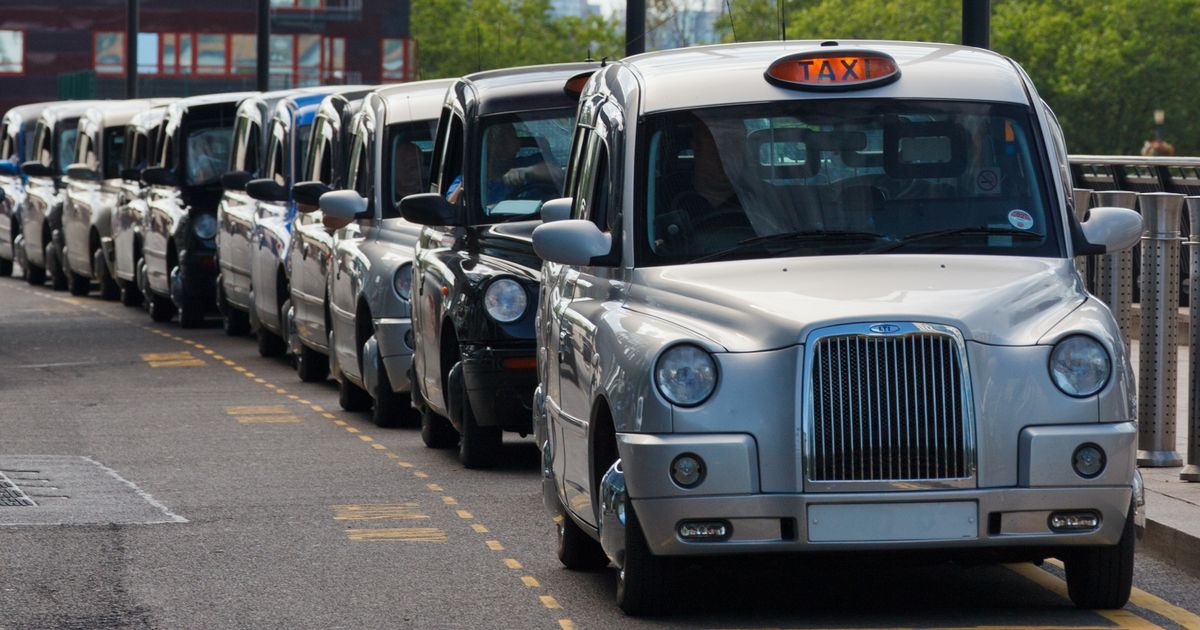The increase in taxi fares is said to be driven by the rise in operating costs over the last two years Taxi fares in Sefton are set to increase(Image: REACH PLC)
Taxi fares in Sefton are set to increase(Image: REACH PLC)
People can expect to pay more to get around in black cabs in one part of Merseyside as maximum tariffs are set to rise.
According to a Sefton Council report presented at a Licensing Committee this evening (September 1), the Hackney Carriage Trade (HCT) has made a series of requests including the introduction of a new tariff 3 covering Friday and Saturday evenings (midnight to 6am). The HCT also asked councillors to approve a change to the applicable time for charging tariff 2 from 11pm-6am to 9pm-6am.
Sefton Council is responsible for setting the maximum hackney carriage fares a driver can charge. The council report includes a breakdown of maximum tariff charges suggested for 2025 and beyond and are calculated using both time spent in the taxi and the distance covered.
Sefton has the lowest hackney carriage fares locally and is currently in the lower quartile of fares charged nationally. The last tariff increase was introduced on October 11, 2023, but councillors have now approved the following increases:
Tariff 1 – £3.20 (currently £2.90)Tariff 2 – £4.00 (currently £3.60)Tariff 3 – £4.40 (new weekend tariff)Tariff 4 – £4.80 (currently £4.10 as tariff 3)
It is hoped the revised tariffs will maintain the current number of vehicles available as well as retaining and attracting new drivers and owners.
The council currently licence 271 Hackney Carriage vehicles with 58 vehicle licences ‘on hold’ and therefore not operational with 250 Hackney carriage drivers.
Mark Toohey, the principal licensing officer for Sefton Council, presented the report, he said the borough currently has the lowest number of taxi drivers it its history.
Mr Toohey added: “We currently have a fixed amount of Hackneys of 271. 58 of those vehicles are on hold, so we’ve only got 213 Hackney carriages on our roads.
“Now the vast majority of the wheelchair accessible fleet comes from the Hackney carriage trade. We’ve currently got 112 wheelchair accessible vehicles as part of that fleet.
“The trade have reported that they just can’t get the drivers. They’re not making enough money and they feel like our tarrifs were lagging behind the changes made by Liverpool city council and Wirral in particular.”
The HCT also submitted three additional requests including an increase to the maximum ‘fouling’ charge – from £40 to £50 – and an update to the starting fares for each tariff.
Additionally, elected members also approved the introduction of ‘calendar controlled meters’ which allow for tariff programming with automatic switching between the tariffs to ensure the correct charges are applied at all times.
